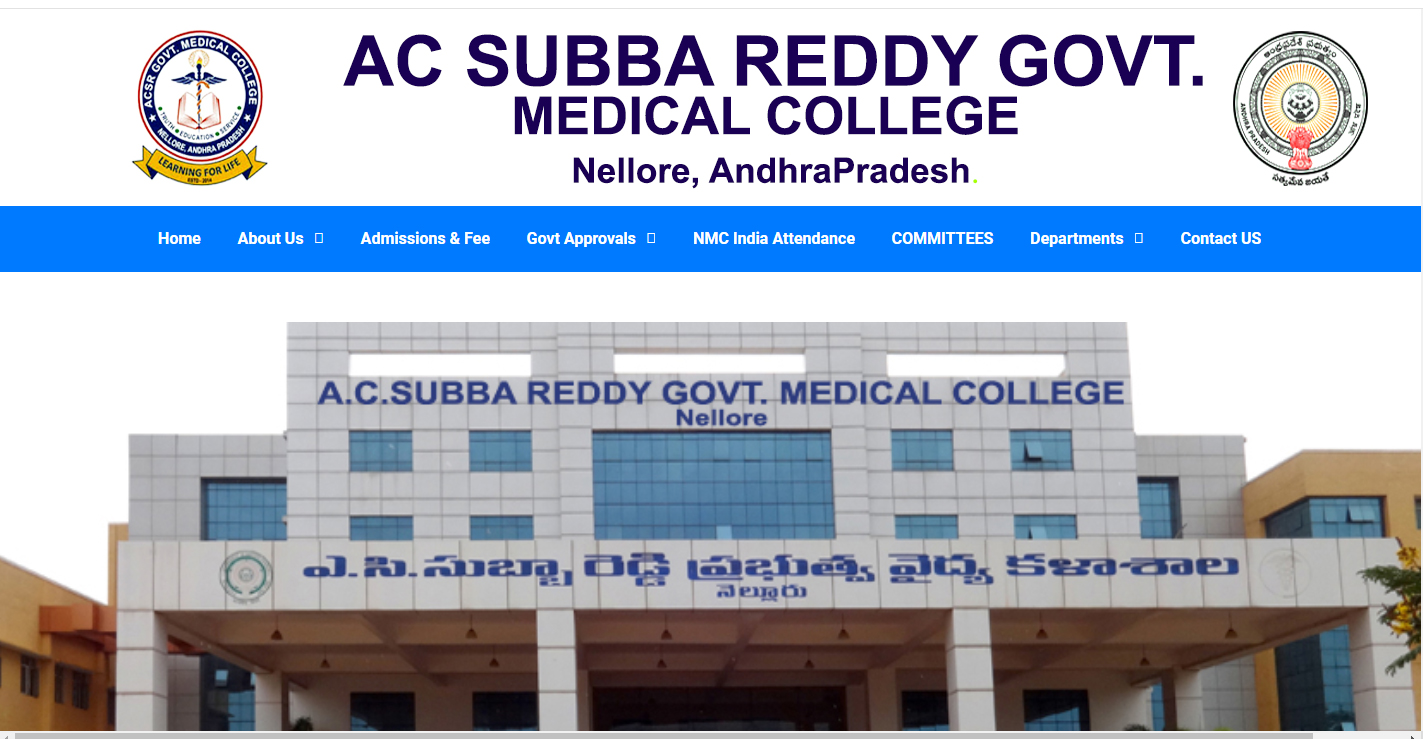
ACSR Government Medical College Nellore
The DSR Dist. Headquarters Hospital, Nellore was built in 1963 to 1968. Foundation Stone laid by the Honourable Chief Minister of Andhra Pradesh Sri Neelam Sanjeeva Reddy. Inaugurated on 18/12/1968 by the Chief Minister of Karnataka Sri.Veerendra Patil and preceded by the Honourable Chief Minister of Andhra Pradesh, Sri. Kasu Brahmanada Reddy.
In 2013 this District head Quarters Hospital upgraded and converted into Medical College & Teaching Hospital by Hon’ble Chief Minister of Andhra Pradesh Sri. Nallari Kiran Kumar Reddy. The college building was completed in 2014 and inaugurated on 19-07-2004 by Sri Nara Chandra Babu Naidu garu. The 1st batch of admissions was permitted in 2014 with intake of 150 seats and students were admitted in August 2014.
M.B.B.S.

Bachelor of Medicine, Bachelor of Surgery (Latin: Medicinae Baccalaureus, Baccalaureus Chirurgiae; abbreviated in many ways, most commonly MBBS, but also MB ChB, BMBS, MB BCh, MB BChir), is the primary medical degree awarded by medical schools in countries that follow the tradition of the United Kingdom. The historical degree nomenclature states that they are two separate undergraduate degrees. In practice, however, they are usually combined as one and conferred together, and may also be awarded at graduate-level medical schools.
Bachelor of Medicine and Bachelor of Surgery (MBBS), is a professional degree in medical science. A person holding the MBBS degree becomes a certified medical practitioner. The duration of MBBS course is five years and six months including one year of rotational internship at hospitals, health centres, and health camps organised by non-profit organisations (NGOs). MBBS course syllabus includes studies on anatomy, pharmacology, pathology as well as community health & medicine, paediatrics, and surgery. The syllabus, prescribed in such a way that MBBS degree holders can choose a specialisation for further majoring and practising medicine. The career specialisations for MBBS students are Nephrology, Cardiology, Gynecology, Anesthesiology, Organ Transplant, Endocrine, and General Surgery, etc.
- Log in to post comments
- 54 views
